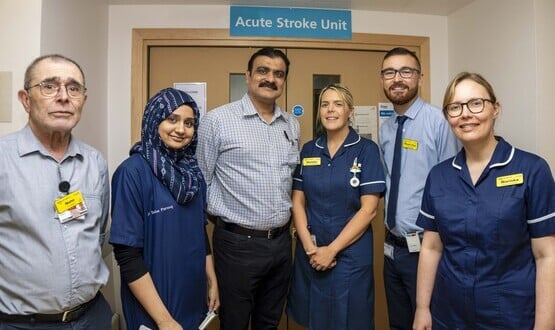Birmingham and Solihull extends patient RFID tagging
- 8 March 2006
Birmingham’s Heart of England NHS Foundation Trust has announced that it is to further expand its trial of tagging surgical patients with RFID wristbands.
E-Health Insider reported in October 2004 the trials of a tagging system in the ENT department of the Heart of England trust, then called Birmingham Heartlands and Solihill NHS Trust. Patients arriving in the ward were given wristbands with WiFi tags, which were linked to an electronic patient record.
Surgeons scan the tags and verify identity using a digital photograph of the patient stored on their electronic patient record. The tag is also used to record pre-operative checking and making sure that risk assessment has been done before the patient enters theatre.
The system links into an electronic operating list, which replaces the paper one previously used. When patients are ready for surgery and have been properly checked, their respective indicator on the list goes green. The operating list is accessible by PDA and over the hospital intranet.
David Morgan, ENT surgeon and director of IT development firm Intelligent Medical Microsystems, told E-Health Insider that there were several reasons why he had switched from WiFi to RFID; WiFi tags were too bulky for a patient wristband, and as they are reusable, there are infection control issues.
The active WiFi tags had broadcast a signal using their own power source, but they were replaced by passive RFID tags in a further pilot by Safe Surgery Systems. These RFID tags share the same frequency (13.56MHz) as do those used by the Oyster cards on London’s transport network, and take up less space on the patient’s wristband.
"It’s interesting how tagging is going," said Morgan. "WiFi is pretty good because you can get localisation down to a metre but the tags are not small enough."
When implemented, the RFID-based system will be expanded across three theatres and five wards in the hospital covering thoracic and ENT departments. The hospital has now gone out to OJEC procurement based on the success of the RFID pilot, and the new contract will be worth around £300,000.
Morgan added that another place radio tags probably had a future in the NHS was tracking equipment; a larger kind of tag that would operate on a different frequency, at 868 MHz, would be most useful for stock control.
"The one that’s 868 MHz has a much larger read distance," he said. "There are probably uses in asset tracking."
Earlier this month, health minister Rosie Winterton said that the NHS Security Management Service was looking into the possibility of electronically tagging equipment. "NHS SMS is also actively exploring the options for making use of new technology to track and trace high value pieces of NHS equipment," she said in an answer to a written question by John Baron, Conservative MP for Billericay.
"This electronic tagging may be used in the future as both a preventative measure and to monitor the whereabouts of key pieces of medical equipment."
Morgan added that for the patient, smaller and more flexible tags were needed. "There’s nothing more high-value in a hospital than a patient."




